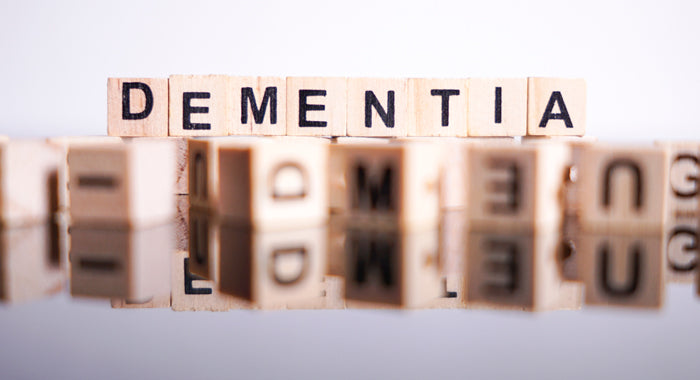Get 20% OFF on your first order. Subscribe to our newsletter and get your coupon!

5 Facts about Dementia
Dementia is a type of brain disorder that causes the loss of cognitive function, memory, and language skills. It has different types with varying degrees of severity. Dementia can be caused by stroke, Alzheimer's disease, Parkinson's disease, or other head injuries, to mention just a few conditions. Here are five facts about Dementia.
What is Dementia, and who is it common in?
Dementia is not a disease but rather an umbrella term for many different types of brain disorders that cause the loss of cognitive function. It affects your ability to remember things, learn new skills, and think clearly.
What does Dementia do to people?

Some people with severe forms of this condition like vascular Dementia and frontotemporal degeneration (FTD) may need 24-hour medical supervision for their physical needs such as eating and bathing. In contrast, others only require care on an occasional basis depending on how impaired their functioning becomes.
In contrast to those diagnosed with Alzheimer’s disease, most people who have Dementia are not aware of their condition and what is happening to them.
Symptoms:
- Memory loss
- Poor judgment
- Strange personality changes or behaviors observed by family members.
- Anxiety and irritability without apparent cause.
- Organization problems.
- Inability to understand verbal instructions.
- Difficulty performing daily tasks.
Who is at risk of developing Dementia?
Everyone is at risk of developing Dementia, but some people have a higher risk than others. This includes those currently experiencing stroke symptoms or other forms of brain injury, those with Alzheimer's disease in their family history, and those living alone.
Different types of dementia?
There are three main types of Dementia. The most common type is Alzheimer's disease, which causes memory loss and some cognitive issues such as difficulty concentrating or recognizing faces; those with this illness will eventually have trouble completing everyday tasks on their own.
A second type is vascular dementia, caused by reduced blood flow to the brain due to diseases like stroke or atherosclerosis (hardening of arteries); symptoms can include confusion, clumsiness in walking, and slurred speech.
Dementia from Parkinson's Disease affects movement coordination and speaks more about motor skills than cognition; symptoms may also include muscle stiffness and a stooped posture. This kind of Dementia doesn't progress as quickly compared to other forms but impacts the quality of life.
Treatment: How can Dementia be treated?
Treatment for Dementia is usually focused on the symptom causing the most significant harm to a person. So, for example, if someone with vascular Dementia has had strokes in their brain and requires speech therapy, those therapies will be prescribed instead of traditional treatment methods like medication or surgery.
It should also be noted that there are no cures for any Dementia; treatments focus on minimizing symptoms and optimizing the quality of life. Therefore, the sooner one seeks medical attention after exhibiting signs of cognitive impairment, and the more effective treatment can be.
How can you help someone with Dementia?
It's challenging to help a person with Dementia, but some things can be done. Some tips include;
- Talking slowly and avoiding distractions;
- Keeping instructions simple and frequent tasks short;
- Making sure the individual has an understanding of who is in their environment;
- Ensuring safety precautions are taken, such as using railing on stairs or installing lights for nighttime use.
The most important thing is patience. While it can be frustrating when we have trouble communicating or completing assignments due to memory loss, simply telling them what you need from them without judgement will go a long way towards helping them understand your needs. It also helps if family members remember not to get frustrated at the individual--their condition isn't their fault, and they deserve to be treated with love and respect.
